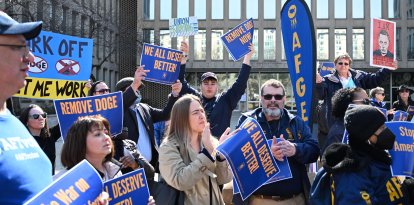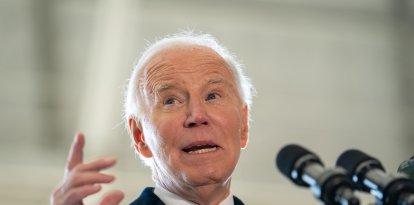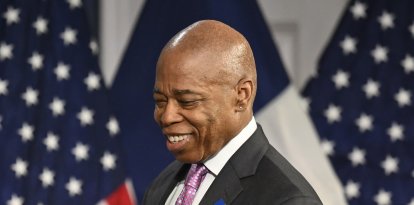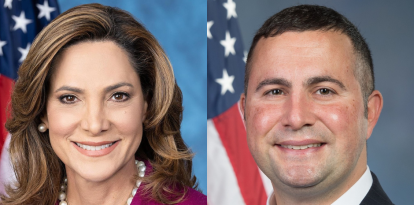Supreme Court rules in favor of extending voluntary departure deadlines for illegals in immigration case
For his part, Trump noted, "I’m doing what I was elected to do, remove criminals from our Country, but the Courts don’t seem to want me to do that.”
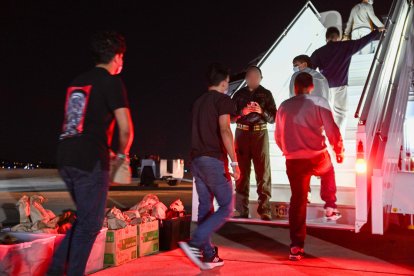
Deported illegal immigrants, boarding a plane.
In a 5-to-4 ruling, the US Supreme Court decided Tuesday that voluntary departure deadlines for certain immigrants, set at 60 days, must be extended to the next business day if they fall on a weekend or legal holiday.
Judge Neil Gorsuch wrote the majority opinion in the case 'Monsalvo Velazquez v. Bondi', joined by Chief Justice John Roberts and Judges Sonia Sotomayor, Elena Kagan and Ketanji Brown Jackson.
This ruling reverses previous decisions of the Tenth Circuit Court of Appeals and the Board of Immigration Appeals.
The case centered on the interpretation of the time limits for "voluntary departure," a mechanism that allows immigrants deemed to be of "good moral character" to leave the United States on their own recognizance within a 60-day period.
The Court ruled that, following long-standing administrative practices, the deadline should be adjusted to exclude weekends and legal holidays. Gorsuch noted that this interpretation is in line with immigration regulations established since at least the 1950s, which exclude Saturdays, Sundays and holidays when calculating deadlines.
He further noted that the Illegal Immigration Reform and Immigrant Responsibility Act of 1996, passed by Congress, adopts the same logic.
"When Congress adopts a new law against the backdrop of a ‘long-standing administrative construction,’ the Court generally presumes the new provision works in harmony with what came before," Gorsuch wrote in the majority opinion.
The ruling directly benefits Monsalvo Velazquez, a 32-year-old Colorado resident who faced deportation in 2019.
Although the case focuses on technical aspects of immigration proceedings, the decision could be indicative of the Supreme Court's approach to a number of upcoming immigration cases, including those related to due process protections for migrants and court injunctions against President Donald Trump's proposed ban on birthright citizenship.
Difference of opinion
However, Judges Clarence Thomas, Samuel Alito, Brett Kavanaugh and Amy Coney Barrett filed dissenting opinions, arguing that the court lacked jurisdiction to rule on the case.
In a separate dissent, Judge Alito asserted that the 60-day deadline is clear and should include weekends. "There will always be a sympathetic pro se alien who is a day or two late," Alito wrote, adding that "Unless the Court is willing to extend the statutory deadline indefinitely, it would presumably be forced to say in such cases that a day too late is just too bad" and "For this reason, sympathy for petitioner cannot justify the Court’s decision," he said.
For his part, President Donald Trump, noted in a message on Truth Social: I’m doing what I was elected to do, remove criminals from our Country, but the Courts don’t seem to want me to do that. My team is fantastic, doing an incredible job, however, they are being stymied at every turn by even the US Supreme Court, which I have such great respect for, but which seemingly doesn’t want me to send violent criminals and terrorists back to Venezuela, or any other Country, for that matter — People that came here illegally! The Courts are intimidated by the Radical Left who are, “playing the Ref.” Great Supreme Court Justice Samuel Alito correctly wants to dissolve the pause on deportations. He is right on this! If we don’t get these criminals out of our Country, we are not going to have a Country any longer. We cannot give everyone a trial, because to do so would take, without exaggeration, 200 years. We would need hundreds of thousands of trials for the hundreds of thousands of Illegals we are sending out of the Country. Such a thing is not possible to do. What a ridiculous situation we are in. MAKE AMERICA GREAT AGAIN.
This ruling, issued just weeks before the Court hears oral arguments on May 15 on the Republican Administration's attempt to eliminate birthright citizenship, signals divisions within the court and its approach to immigration issues.
RECOMMENDATION

